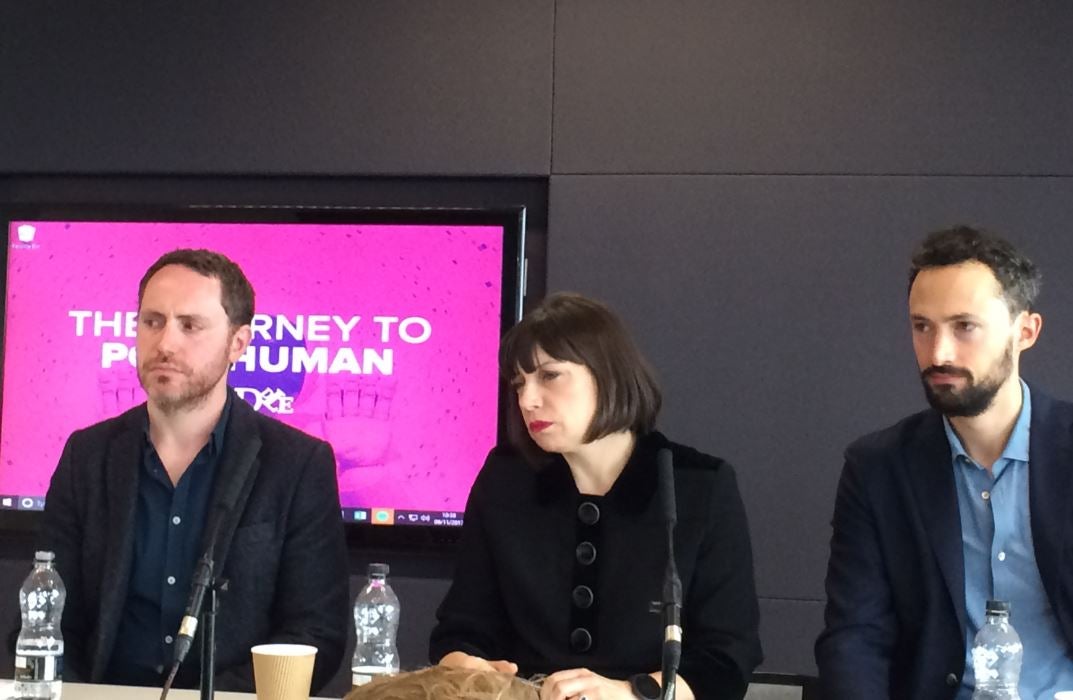
The “who, what, where and when” of journalism can be “commoditised” by artificial intelligence, but it is the “why” that requires human relationships, Sky News political correspondent Beth Rigby told a conference on the future of journalism today.
Speaking as part of a panel including Times columnist Hugo Rifkind and Times head of investigations Alexi Mostrous, Rigby said: “The success of journalism in terms of AI is that a lot of it can be commoditised. But the thing that you can’t commoditise is ‘why’.
“To say ‘why’ a story matters you need human relationships.”
Mostrous said that while artificial intelligence (AI) can be “very suitable to some types of journalism”, it was also “very unsuitable to other types” and that this contrast was “quite extreme”.
Referring to the Paradise Papers story, which was not leaked to the Times, he said that journalists had received a “data dump” from an unknown source which they then had to compile and analyse for news stories.
“You can imagine in future years that very powerful computer systems will be able to help journalists do that job very effectively,” he said. “But that’s only 10 per cent of the journalism pie.
“The other 90 per cent is based pretty much on human relationships. It’s based on contacts and persuading people in quite a lot of circumstances to do something they wouldn’t normally want to do. It’s hard to see how AI would be able to fill that role.
“It would be an extraordinary help but it can never replace the essence of what most of us [journalists] do most of the time.”
Rifkind said one of the major issues he had with the rise of robotics and automation in journalism was that it made journalism “easier to fake”.
He said: “The more you outsource your newsgathering to algorithms, to data and process, the easier it is for someone to put something into the system at one end and wait for it to come out the other end.”
He also said that relying on “data streams – looking at who is saying what online” was tempting in covering politics and news, but warned relying on it meant you “just get it wrong”.
At a separate panel, part of the Huddle “The Journey to Post Human” day of events in London, on whether robots could do investigative journalism, deputy managing editor of The Independent and The Evening Standard Will Gore said: “If you want that emotional relationship between your journalism and your audience, then it has to be a human endeavour.
“Journalists find stories because they know people, they get tips, they kick up rumours and that’s really what leads journalists to stories. That’s quite a hard thing to replicate with AI.
“Technology has an incredible role to play in journalism… but as long as we are writing about human stories, we need humans to tell those stories.”
Press Gazette asked Gore if he could see robots churning out press releases.
He said: “That’s the area where you could most conceive of artificial intelligence having a positive impact on journalism because it will free up resources for investigative journalism.”
Gore said there are no plans to introduce robot reporters at the Evening Standard and Independent titles.
Pictured above: Hugo Rifkind, Beth Rigby and Alexi Mostrous.
Email pged@pressgazette.co.uk to point out mistakes, provide story tips or send in a letter for publication on our "Letters Page" blog
